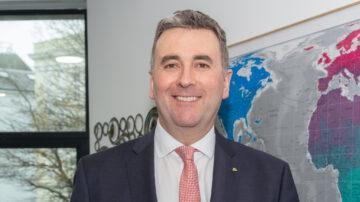Welcome to the second part of our series looking into ESG investing. Today, we take a look at what ESG means for global islands and the importance of ESG investing.
In the first part of our series we took a look at what ESG investing is and why it is positive for both investors and the planet. If you missed this, click here.
What does ESG mean for global islands?
The rise of ESG investments is expected to have a positive effect on how global decision-makers operate – whether it be via business or policy, ESG represents the next step in sustainability.
By prioritizing solutions that are good for both the environment and the economy, it opens more opportunities for local entrepreneurs to shine through with their own solutions, and potentially find avenues for funding that may not have been there prior to the popularization of ESG. This provides direct economic benefits to island communities, some of which were discussed in-depth at the Island Finance Forum (IFF), but also has the potential to help mitigate the impacts of climate change, which disproportionately affects island and coastal communities.
The combination of increased social pressure, the public’s willingness to financially support sustainable business models, and the ongoing global push for responsible climate policy, are creating an environment in which ESG can thrive.
Of course, one should not forget that ESG investments are not only beneficial in terms of being a good financial investment for businesses and investors but also critical for the environmental health of the planet. The financial gain from ESG investing should be of secondary importance to the major sustainability and ethical gains that it brings.
Investors increasingly want to invest in companies that are doing good for people and the planet. As this momentum continues to grow, this will lead to increasing numbers of businesses enacting changes that align with the ethical and environmental criteria of investors and consumers. For example, many major corporations have recently announced their plans to become carbon neutral in the next two decades including Starbucks, Microsoft, Apple, Amazon and Unilever. This exemplifies the potential behind ESG, and how it can have significant long-term benefits in the global fight against climate change – and island communities.
Closer to home, Channel Islands companies are pledging ‘net-zero’ using the ESI Monitor register.
‘Doing good’ is becoming highly profitable, rather than being a cost
It’s clear that taking into account the ethical and sustainable demands of investors is good for business. ‘Doing good’ is becoming highly profitable, rather than being a cost. Examples of this are the growing demand for renewable energy such as solar and wind and electric vehicles such as cars produced by Tesla. Another is the growth in vegan/plant-based diets.
The global vegan food market size was valued at USD 12.69 billion in 2018 and is projected to expand at a Compound annual growth rate (CAGR) of 9.6% from 2019 to 2025 (Grand View Research).
Importace of ESG investing
Major corporations and governments have often had issues regarding their actions or investments and how they may betray a short-term bottom-line approach rather than a sustainable long-term solution. Where the populace at large was once less informed of how our actions can impact the planet, they have become more aware and ready to advocate for a transition towards a better economic model.
This has led to a corresponding shift among decision-makers, who are now more likely to be held accountable for their decisions regarding investments, their environmental impact, treatment of their workforce – this is where ESG enters the fray.
Business owners are becoming aware that it is vital to factor in environmental and worker protections. They also know that they need to change their governance structures and lead in more fair and inclusive ways.
ESG investing and other forms of sustainable and ethical investing is leading to fundamental change.
Join us for part three of this series, when we will be looking at aligning investment to sustainable development goals (SDG), the hidden problems with ESG investments and asking whether ESGs really are a ‘good’ investment.
You can catch-up with the Island Finance forum here, featuring…
- Moderator – Fiona Wilson, Senior Program Manager, Clinton Climate Initiative, Clinton Foundation Speakers:
- Jackie Marati, Senior Vice President/Chief Communications and Corporate Social Responsibility Officer, Bank of Guam
- Mark Lewis, Chief Sustainability Strategist, BNP Paribas Asset Management
- Steve Weinstein, Chair, Bermuda Business Development Agency (BDA); Former Chief Legal Officer, RenaissanceRe Holdings Ltd; Chair, RenaissanceRe Risk Sciences Foundation
- Simone Hudson, CFA, AVP Alternatives and Fund Management
Special report by courtesy of James Ellsmoor at Island Innovation. Written by Simon Turkas














